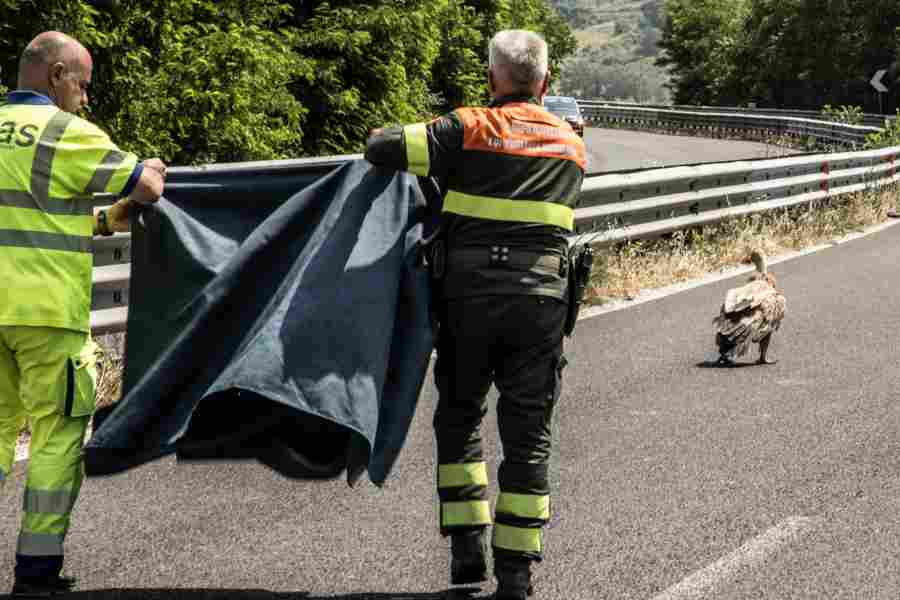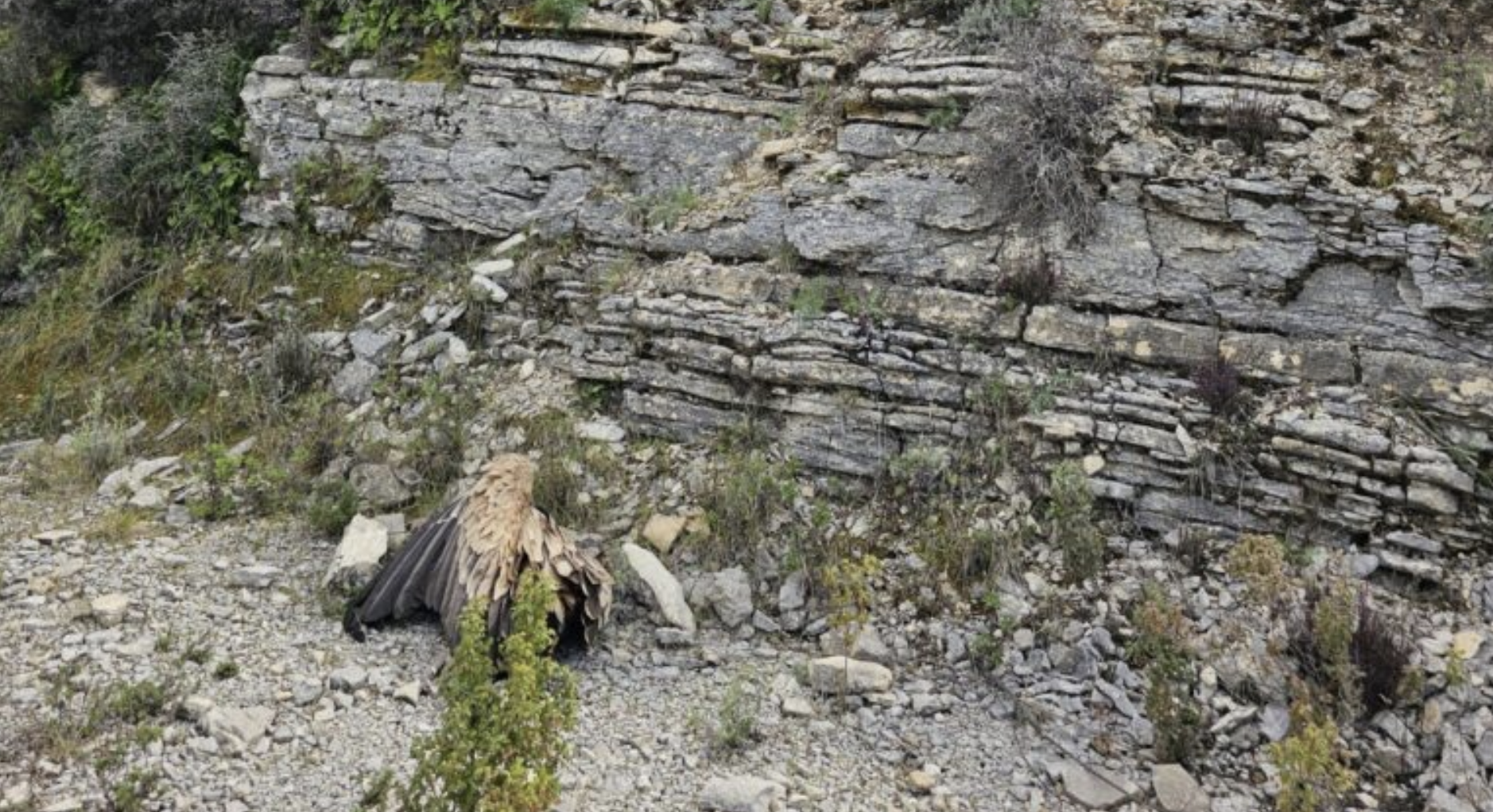
Years of conservation efforts in the Rhodopes Mountains in Bulgaria has resulted in positive and steady growth in the number of Griffon Vultures in the area, which consists of the only indigenous population of the species in the country. This year is no different as many chicks hatched in the area once again!
Griffon Vulture breeding period
Griffon Vultures are known to be caring parents. Individuals begin to breed once they reach four to five years, and the breeding season usually begins in early winter with nest-building activity. Each pair lays one egg, with both parents sharing the incubation responsibilities for about 50 days. Vulture chicks typically hatch at the end of March and early April. During hot summer days, the devoted Griffon Vulture parents take turns extending their wings for hours to provide shade to their offspring. By mid-summer, the nestlings that weighed only a few grams when they hatched are no longer small. Although they are only a couple of months old, their wings are fully developed and weigh as much as adults, around 7 kg and sometimes even more.
Many Griffon Vulture chicks hatched in 2021
The LIFE RE-Vultures project is thrilled to announce that 72 Griffon Vulture chicks have so far hatched in the Rhodope Mountains in Bulgaria this year. Local partners from Rewilding Rhodope team and the Bulgarian Society for the Protection of Birds (BSPB) visited all the nesting sites in the eastern part of the Rhodopes Mountains in mid-May to conduct the count. The number may increase in the coming weeks as there is still one promising pair expected to hatch a chick soon. Last year, the team registered 73 hatched chicks, a similar number. With 51 chicks hatched in 2016, this year’s result continues the stable or upward trend witnessed in the last five years.
Griffon Vulture in Bulgaria
Once common and widespread until the middle of the 20th century in Bulgaria, the Griffon Vulture faced a dramatic decline in the following years. The species was thought to be extinct in the country in the 1960s, largely due to the decreasing availability of food, habitat loss, persecution and poisoning. But in 1978, conservationists discovered 20 birds and three nesting pairs in the Rhodope Mountains. Significant conservation efforts by BSPB since 1989 led to the slow increase of this population that now numbers around 80 breeding pairs. Releases of individuals that started in 2020 have also reintroduced the species to the Balkan Mountains as well.
LIFE RE-Vultures

Starting in 2016, the five-year LIFE RE-Vultures project was developed by Rewilding Europe, in collaboration with the Rewilding Rhodopes Foundation the Bulgarian Society for the Protection of Birds, WWF Greece, the Hellenic Ornithological Society and us here at the Vulture Conservation Foundation. The aim of the project is to support the recovery and further expansion of the populations of Cinereous and Griffon Vultures in the cross-border region of the Rhodope Mountain by improving natural prey availability, monitoring movements of birds to help understand the threats they face and carrying out activities that will reduce the mortality of the populations from threats such as illegal wildlife poisoning and collisions with electricity infrastructure.




